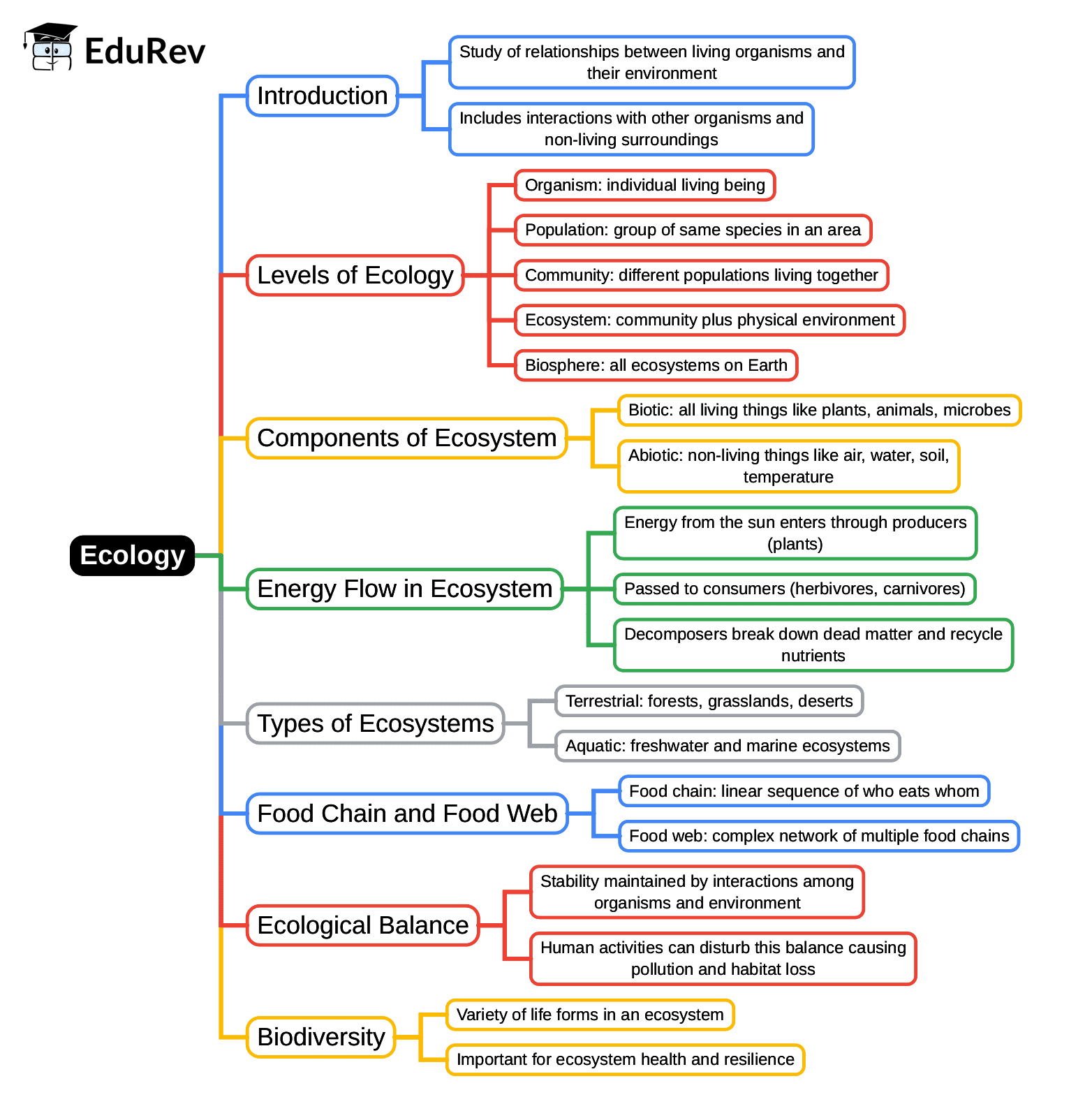UPSC Exam > UPSC Notes > Environment for UPSC CSE > Mind Map: Ecology
Mind Map: Ecology | Environment for UPSC CSE PDF Download

The document Mind Map: Ecology | Environment for UPSC CSE is a part of the UPSC Course Environment for UPSC CSE.
All you need of UPSC at this link: UPSC
|
96 videos|231 docs|52 tests
|
FAQs on Mind Map: Ecology - Environment for UPSC CSE
| 1. What is ecology? |  |
Ans. Ecology is the scientific study of the relationships between organisms and their environment. It focuses on how living organisms interact with each other and their surroundings.
| 2. Why is ecology important? |  |
Ans. Ecology is important because it helps us understand the relationships between organisms and their environment, and how these relationships impact the overall functioning of ecosystems. This knowledge allows us to make informed decisions about conservation, management, and sustainable use of natural resources.
| 3. What are the different levels of ecological organization? |  |
Ans. The different levels of ecological organization are individual, population, community, ecosystem, and biosphere. The individual level refers to a single organism, while a population consists of multiple individuals of the same species in a given area. A community is a group of populations living and interacting in the same area. An ecosystem includes both living organisms and their physical environment, and the biosphere encompasses all the ecosystems on Earth.
| 4. How do human activities impact ecology? |  |
Ans. Human activities have a significant impact on ecology. Activities such as deforestation, pollution, habitat destruction, and climate change can disrupt ecosystems, leading to the loss of biodiversity and ecological imbalances. It is important to manage our activities sustainably to minimize negative impacts on the environment.
| 5. What is the role of biodiversity in ecology? |  |
Ans. Biodiversity, or the variety of life on Earth, plays a crucial role in ecology. It ensures the stability and resilience of ecosystems by providing different species with specialized roles and functions. Biodiversity also contributes to ecosystem services, such as pollination, nutrient cycling, and climate regulation. Protecting biodiversity is essential for maintaining healthy and functioning ecosystems.
Related Searches






















